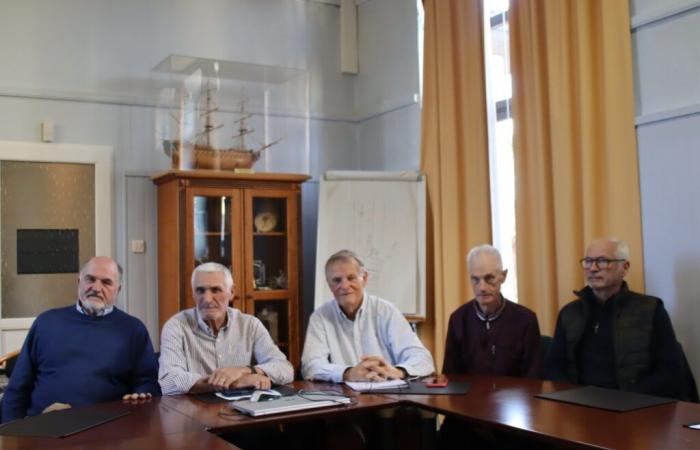
Par
Edwin Bleunven
Published on
Nov 26 2024 at 5:58 p.m
See my news
Follow Le Républicain Sud-Gironde
In Gironde, the anti-LGV continue their fight to put an end to this project which they consider useless and totally outside the framework originally planned. On November 18, it was the Landes Graves viticulture environment en Arruan association (LGVEA) which attempted a new action to put an end to the rail development project south of Bordeaux (AFSB), an important component of the overall Bordeaux-Toulouse LGV project.
A summary filed before the judge
The association filed a referred to a judge in order to suspend an extension of the declaration of public utility (DUP) of the project. This initiative is supported by two other associations, the Sepanso et Trans’Cubeas well as the community of communes of Montesquieu.
We have a lot of hopes.
“We have a lot of hope,” reveal the representatives of these entities gathered on Friday, November 22 in Saint-Médard-d’Eyrans. In fact, they are moving forward with argumentswhich seem to them more than admissibleintended for the summary judge.
A detailed argument
“You should know that the AFSB project and the DUP are based on data imagined a long time ago and which are far from reality today,” the representatives argue.
Their first argument is based on an anticipation of train attendance “ wacky “. Indeed, at the dawn of the project, the latter's estimates were 11 times larger than the number of actual travelers who currently use the line concerned by the AFSB.
The LGV, what is it?
The Grand South-West Rail Project (GPSO), which recently became the New South-West Line, should make it possible to create high-speed lines to connect Bordeaux and Toulouse in particular. Announced cost: 14.3 billion. The project must be financed 40% by the State, 20% by the European Union, 40% for local authorities.
Many groups and opponents denounce ecological madness, in particular because of its passage in the Ciron valley, and an estimated cost well below reality.
The second argument supported by the depositaries of the summary procedure concerns the project financing which has not been recalculated and which would pay more to local authorities “since the initially planned share of financing of 35% by the Réseau de France is gone to zero and Europe's share of financing is not not guaranteed ».
Which has already resulted in a cost for local authorities multiplied by three compared to what was originally planned. The stakeholders in this summary question why the DUP was extended when financing is no longer guaranteed and that “the planned budget exploded by 56%”.
Two planned routes ultimately useless?
Finally, the last point which giveshope to the associations and the CCM is that of the usefulness of the third and fourth lanes planned in the AFSB project between Bordeaux and Langon.
The SNCF recognized the uselessness of these tracks in one of its texts by explaining that the preferred solution now is mixing trains.
Ces 3e et 4e routes were initially planned for unclog the roads. Ultimately, only one will be used in one direction.
« An aberration to make two more lanes which will be of no use”, is indignant Germain Suys, former SNCF engineer retired who notably worked on the developments for the LGV Nord Bordeaux Tours.
Response from the judge in early December
LGVEA therefore requests a suspension of extension of the DUP within the framework of the AFSB which could lead to thestoppage of construction and would make it possible to await the decision of the administrative court in September 2025.
“These AFSBs are a alibi from the LGV and the prefect should never have extended the DUP”, supports Christian Tamarelle, mayor of Saint-Médard-d'Eyrans, a municipality affected by the AFSB, and fervent opponent of the project.
The judge's response to his remonstrances early December.
Follow all the news from your favorite cities and media by subscribing to Mon Actu.





